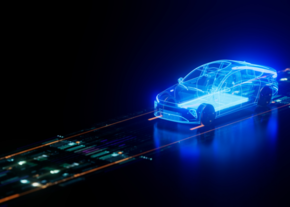
Artificial Intelligence and the evolution of garage equipment
Massimo Brunamonti
That fact the evolution of automotive technologies results in the development of new workshop equipment is as obvious as it may seem. Nevertheless, the fact that the current scenario of profound changes, both technological and socio/behavioural, finds auto equipment manufacturers not only ready but also, in their own words, precursors of change, is strikingly positive. This was noted by Prof. Silvano Guelfi, of the Department of Management and Production Engineering at the Politecnico di Torino, during a workshop dedicated to artificial intelligence applied to the automotive sector that took place at Futurmotive at Autopromotec on December 10. The workshop, which saw the participation of some of the most popular garage equipment manufacturers, focused on the impact AI is having on the sector in general and on car equipment in particular. Prof. Guelfi himself described the potential of this new technology as a tool designed to make a better use of resources, on the condition that some of the major issues related to it such as ethics and legal implications are solved first.
The participants focused on the technological innovations that future equipment will bring. The huge amount of data processed in modern cars, says Domenico Ferrara of Hella Gutmann, requires new algorithms, and manufacturers are hard at work in implementing these on their equipment in an effort to offer more efficient services. In addition to equipment, car repairers will also have to deal with a new business model: customers are making a transition from car owner to mere car users, therefore, traditional assistance is being transformed into behavioural simulation; all this, points out Luciano Marton of Texa, requires native digital equipment. Added to this is the fact that as cars transition from assets to pure mobility tools, as Carlo Rocchi of Mahle points out, traditional vehicle assistance will go from maintenance and repair to fault prevention, or planned maintenance, and this requires, in addition to a new way of designing equipment, the complete availability of maintenance and repair information from car manufacturers. Access to vehicle data and technical information: an age-old problem for the entire industry, which has long been dealing with a proliferation of different and incompatible formats, data, protocols and communication standards. Artificial intelligence, with its machine learning technologies, might lend a hand in this, says Roberto Nicolini of Nexion, helping the development of connected equipment. The interconnection between equipment, workshop, car, customer and manufacturer, also in the opinion of Marco Codeluppi of Beissbarth, is the cornerstone of future and more efficient car repair services in a scenario of free competition.
All participants agreed on the importance of road safety: given the rapidly evolving technological scenario, new inspection tests for electronic safety systems must be introduced as a matter of urgency. Unfortunately, the legislators are lagging behind in this area. The results of studies and experiments on new tests based on existing technologies are already available in Europe, but in order to ensure that these new-generation tests are adopted, political awareness and renewed cooperation on the part of car manufacturers are required. The emerging scenario, as Prof. Guelfi concludes, is that of an extremely reactive industry made up of companies that seem to be able to anticipate the future. However, a great deal of work remains to be done on common standards and rules to protect free competition and safety for both professionals and citizens.
























